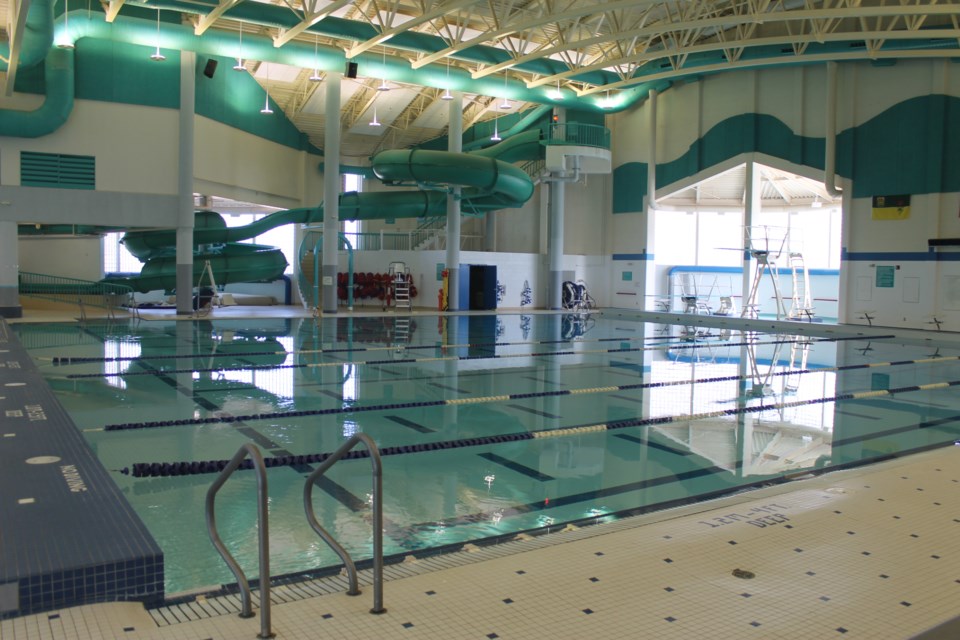MOOSE JAW — Residents who use parks and recreation venues will pay higher rates starting April 1, but they won’t pay an extra fee that would support capital improvements to those venues.
City council had a tense discussion about whether to approve a parks and recreation venue improvement fee during its recent 2025 budget meeting.
The proposed fee would have seen “modest charges” applied to admissions, memberships and rentals, with the extra revenue going into a dedicated capital reserve account to support renewal projects and reduce pressure on the municipality’s overall capital budget, which is short $69 million over the next five years, a budget report said.
Of that shortfall, $29 million belongs to the parks and rec branch, including $13 million for a new outdoor pool, the report added. Meanwhile, the fee would have generated roughly $46,036 in revenue this year and $73,307 annually starting in 2026.
Council saw things differently, however, and voted 4-3 against creating a capital reserve account for the fee. In favour were Mayor James Murdock and councillors Heather Eby and Jamey Logan, while opposed were councillors Chris Warren, Caral Delaurier, Patrick Boyle and Dawn Luhning.
Furthermore, council voted 4-3 in favour of the proposed 2025 parks and recreation rates and fees increases — which typically go up annually — but excluded implementing the venue improvement fee. In favour were Warren, Delaurier, Boyle and Luhning, while opposed were Murdock, Eby and Logan.
Boosting membership
A budget report said the parks and rec branch prefers to boost revenues through higher attendance levels while keeping services and programs affordable, which is a more sustainable, long-term approach. That is why it doesn’t significantly increase annual rates because that leads to reduced attendance and usage.
With the slight increase in rec rates and fees this year, the city expects net revenues to increase by $167,730, leading to an overall cost recovery of 51 per cent from 47 per cent in 2024.
City administration told council that the parks and recreation levy — which charges all property owners $65 yearly — generates $1,092,000 annually for capital improvements. However, the proposed fee would be separate and would support one-time projects, such as installing a concrete floor in an arena.
“The whole premise behind this is that users of the facilities are contributing directly to the improvements that are occurring within those facilities and not necessarily relying on the general tax base to fund some of those things, as the levy does,” said Derek Blais, director of community services.
Council comments
Eby liked pursuing higher attendance levels over significant rate increases since it kept admission and membership prices affordable. Moreover, she liked the improvement fee because it was an easy concept to defend since it supported venue upgrades.
Luhning struggled with the improvement fee because she didn’t see the difference between it and the levy, while she thought the levy should be sufficient.
“My gut tells me not to approve the improvement fee at this time because we’re already building a reserve for capital projects and capital upgrades,” she said. “I really don’t think having little pots of money all over the place for the same thing … will seem different to the average citizen.”
Luhning added that the proposed improvement fee — which she thought was a fairer approach than the levy — was just another way for administration to acquire more tax money for venue upgrades because the levy wasn’t enough.
Warren liked the improvement fee concept, but because the mill rate increase was 3.99 per cent and the water and wastewater utilities were each increasing by four per cent, he didn’t want to impose that expense now.
Logan approved of increasing the regular rates and fees and approving the improvement fee, noting that recreation users — through the latter fee — would likely be happy paying an extra 50 cents on drop-in admissions or $5 per hour extra for ice rentals if it meant capital enhancements to those places.
“It’s more money, but it’s spread out among so many people, and it’s not every taxpayer,” he added. “If you don’t go to the facility, then you don’t have to pay that fee.”




